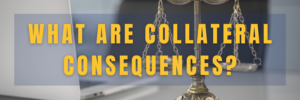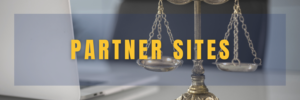Collateral consequences consist of legal and regulatory limitations and are imposed on an individual as the result of a criminal conviction. As opposed to the time spent incarcerated in order to fulfill a sentence given by a court, collateral consequences are an indirect form of punishment imposed at the federal, state, and local levels, and pertain to the world that formerly incarcerated individuals face upon their reentry into society. Collateral consequences broadly apply to anyone with a criminal record, meaning that they can also affect those who never even end up spending any time incarcerated. In essence, they become attached to the lives of individuals with a criminal history, denying them the rights and privileges afforded to all other Americans on the basis of their status as ex-offenders. To varying degrees, collateral consequences can prohibit people convicted of a crime from accessing employment, business and occupational licensing, housing, the right to vote and to serve jury duty, education, and certain federal benefits–such as welfare, unemployment, and student loans, among other opportunities.[1]
Some collateral consequences are designed to preserve public safety, such as those meant to strip violent offenders of weapons, remove those guilty of abuse or assault from certain situations, or other similar precautionary measures. Others, however, are often unrelated to the actual crime that was committed, causing one to possibly lose rights in a number of different dimensions of their lives following a conviction, even if their offense has no direct relationship to those rights that are lost. Nor does the effect of collateral consequences always have a relationship to the time that has passed since a conviction. In effect, this means that, in certain circumstances, an individual convicted of a crime can never fully regain their rights despite potential rehabilitory or restorative efforts they may pursue. In some cases, collateral consequences can be discretionary. But, most of the time, they are automatic and are activated as the result of either felony or misdemeanor convictions.[2]
It is important to note that collateral consequences are an outflow of the central role that accountability plays in the criminal justice process. There are certain penalties tied to criminal convictions so that potential offenders remain wary of the consequences of breaking the law, even if these consequences sometimes extend beyond a sentence behind bars. Few would ask for a system in which this was not the case. That being said, it is nonetheless crucial to realize that prosecutors do not have to sacrifice their pursuit of accountability in order to adequately address the negative effects of collateral consequences. In fact, prosecutors in every part of the country can reinforce existing accountability mechanisms, reduce recidivism, and better target the root causes of crime by seeking to understand the pervasiveness of collateral consequences and utilizing their power to contain the extent to which they serve to undermine the primary objectives of criminal justice.
[1] Collateral Consequences and Reentry Needs. Prison Fellowship.
[2] Collateral Consequences: The Crossroads of Punishment, Redemption, and the Effects on Communities. (2019). United States Commission on Civil Rights.





